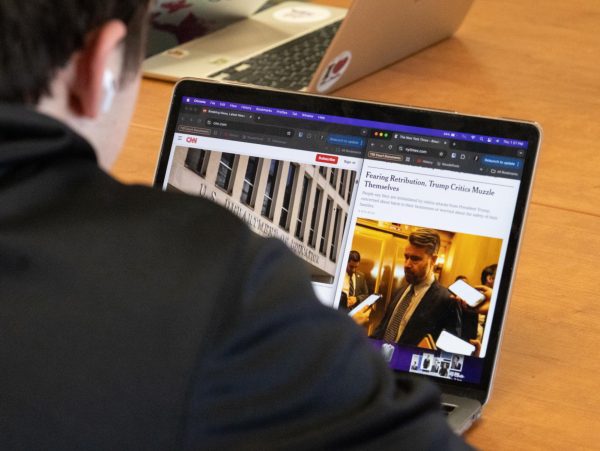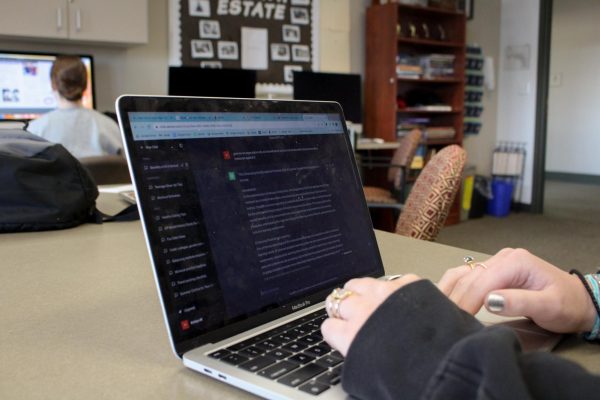Brasileira in Tennessee
Immigrants are not the enemy
Photo: Laura McDowell
People who don’t know me may not know I lived in Brazil for 11 years of my life. Despite easily assimilating to American culture, nothing about me is American. Portuguese is my first language, and my instinct is to greet someone by kissing them on the cheek. I refer to people using their first name, including authority figures like teachers and presidents. I eat pizza with a fork and knife, and I arrive at parties and social gatherings an hour after they begin. I am proud of who I am and where I am from.
However, within the past few months, it has become increasingly difficult to be outspoken about my culture due to an increase in the number of hate crimes towards people of different backgrounds.
According to the Southern Poverty Law Center, there were a total of 867 cases of “hateful harassment or intimidation” in the United States within the 10 days following the 2016 election. Although President Donald Trump told individuals who were harassing minorities to “stop it,” hate crimes have still jumped six percent since the election.
This number could be even higher since, according to a recent FBI report, many hate crimes go unreported. During this time, mosques have received threatening letters, swastikas and white supremacist phrases have appeared in public spaces and anti-immigrant chants have become more common in high schools. Some of this hate speech echoes the idea that immigrants are taking American jobs.
My family and I are immigrants and, until recently, none of us had a green card. I still only have a visa. Nonetheless, my parents pay taxes to the U.S. government, my dad has a full-time job, and I work hard in school and give back to my community by volunteering. Unfortunately, families like mine are being blamed for America’s economic crisis.
I understand that life has been difficult for many Americans and that finding jobs that both pay enough money and also provide basic needs is challenging.
Although it is easy to blame legal and illegal immigrants for this issue, we are not the problem. Technological advancements put more jobs in jeopardy, and the rate at which machines replace humans rises each year. Because of the increasing technological efficiency of factories and the rising use of robots, employers are in need of fewer workers. These breakthroughs endanger an estimated total of 47 percent of total employment in the United States, according to a study from the Oxford Martin School.
Unfortunately, these facts do not protect my family from discrimination. My mother has a thick Brazilian accent when speaking English. Although she is not bothered by it, in certain circumstances, she has to repeat herself because some people have a difficult time understanding her, and there are many instances where she is not taken seriously by her American counterparts. It is difficult to come home and hear my parents share their experiences with discrimination.
And, sometimes while I am at school, I fear that an unkind person will cross their paths and I won’t be there to defend them against that stranger’s ignorant words.
The truth is that immigrant families are not the cause of our country’s problems and generalizing about immigrants is not fair.
How can we fix this? The solution starts with us. We need to avoid making jokes about building walls or kicking foreigners out of this country. We need to be more informed about the causes of unemployment and other issues that trouble of country rather than looking for a scapegoat. We need to treat others equally, no matter where they were born or what citizenship they have.
No, I am not American, but we should learn to celebrate our differences rather than condemning them because I, along with other foreigners, am fully capable of positively contributing to American society.












